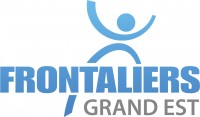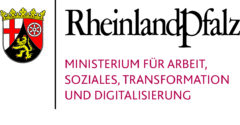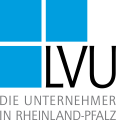The Luxembourg student financial aid system, known as AideFi, allows eligible students to pursue higher education without financial constraints or parental resistance being a barrier.
Target Audience
All individuals enrolled in higher education—whether full-time or part-time—may be eligible for AideFi.
Part-Time Students
Part-time students must take between 15 and 17 ECTS credits per semester, or follow at least half the minimum duration of the study program.
Secondary School Students in Vocational Training Abroad
Students in general or technical secondary education may also be eligible, under the following conditions:
- The vocational training is not offered in Luxembourg;
- The training must be conducted full-time at the school;
- The student must be considered “abroad” from the perspective of their place of residence.
An official request, including the enrolment confirmation and training program, must be sent by post to:
Service de la formation professionnelle (SFP)
29, rue Aldringen
L-2926 Luxembourg
Eligibility Conditions
For Non-Residents
Non-resident beneficiaries must be:
- A worker (or self-employed) from Luxembourg, the EU, EEA or Switzerland, working in Luxembourg at the time of the application; or
- A recipient of a Luxembourg orphan’s pension and a national of the aforementioned countries; or
- A child of a national from these countries, who contributes to the student’s support and works in Luxembourg at the time of application, provided that one of the following criteria is met:
- The parent has been affiliated with Luxembourg’s CCSS for at least 5 cumulative years over the past 10 years before the application; or
- The parent has been affiliated with the CCSS for at least 10 cumulative years at the time of application; or
- The student has completed at least 5 cumulative years of education:
- In a public/private institution in Luxembourg offering fundamental, secondary, or vocational education;
- At the Deutsch-Luxemburgisches Schengen-Lyzeum Perl;
- In a program leading to a Bachelor’s, Master’s, Doctorate, or medical specialization diploma at the University of Luxembourg;
- In a program leading to a Brevet de technicien supérieur accredited by the Minister;
- In an accredited foreign higher education institution established in Luxembourg;
- Or, the student has legally resided in Luxembourg for at least 5 cumulative years at the time of application.
Additional Remarks:
Internships do not qualify as employment and do not open the right to AideFi.t to AideFi.Convention de stage) werden nicht als Erwerbstätigkeit anerkannt und berechtigen nicht zur AideFi.
Employment with European or international institutions in Luxembourg, as well as receiving pensions, annuities, or unemployment benefits from the State, count toward the required affiliation period.
Children of the partner or spouse in the household meeting eligibility conditions are also concerned.
A student living in Luxembourg solely for study purposes and earning less than the minimum social wage is considered non-resident.
AideFi Structure
AideFi consists of:
An optional student loan with interest.
Various cumulative grants, and
Practical Arrangements
Types of Grants
1. Basic Grant
- Granted to all eligible students.
- Amount: €1,228 per semester.
2. Mobility Grant
- For students studying in a country other than the household’s residence.
- Requires proof of housing expenses (lease, rent receipts, etc.).
- Amount: €1,528 per semester.
3. Social Criteria Grant
- Awarded based on household income.
- Income must not exceed 4.5 times the gross minimum social wage (MSW).
4. Family Grant
- Available when 2 or more children from the same household are eligible for AideFi.
- Paid in a single installment during the summer semester.
- Amount: €294 per student per semester.
Note:
Student jobs limited to 10 hours per week or during holidays do not impact the social grant.
However, any other income may reduce the aid or exclude the student if it exceeds 3.5 times the MSW.
Student Loan
The loan is optional and may be declined.
Eligible students can apply for:
- Basic student loan: €3,250 per semester
- Supplementary amounts: based on tuition fees or social criteria
The loan:
- Is guaranteed by the State
- Must be taken out with a partner bank
- Bears a maximum interest rate of 2%
- Repayment begins no later than two years after graduation or termination of studies, with a maximum repayment period of 10 years
In cases of financial difficulty, students may request an extension from their bank, reviewed by an advisory committee and decided upon jointly by the Ministries of Higher Education and Finance.
Non-Cumulation Rule
Luxembourg’s AideFi cannot be combined with equivalent financial aid from the student’s country of residence (e.g. grants, family allowances, housing support).
Non-residents must provide official certificates from their country stating which aids were granted or denied (except if denied on administrative grounds).
Exemptions:
- Merit-based scholarships;
- International mobility aid (e.g. Erasmus+).
Students with Disabilities
Students with disabilities may benefit from:
Deferral of academic performance review beyond the standard two-year limit, if justified.
€1,000 extra per year in both grant and loan, if they face extraordinary expenses;
Extension of AideFi eligibility period;
Application Procedure
Non-Resident Students
AideFi is a substitute aid.
Applicants must first apply for financial aid in their home country.
Competent Authorities by Country:
- Germany: BAföG
- Belgium:
- Allocations d’études (French Community)
- Studietoelagen (Flemish Community)
- Studienbeihilfen Ostbelgienbildung (German-speaking Community)
- France:
- CROUS
- Regional Councils (for healthcare and social programs)
The official response (approval or refusal) for the current academic year must be attached to the AideFi application.
Administrative rejections are not accepted.
Certificates must be renewed annually.
Online Application
Accessible on MyGuichet.lu in two modes:
- Without authentication: for users without LuxTrust or eID.
- With authentication: allows form auto-fill, status tracking, and access to previous applications.
Submission:
Applications can be submitted before all documents are available. Missing items can be added later.
Notifications are sent via email (confirmation, updates, etc.).
First-Time Application
Must include:
- ID document (if unauthenticated);
- Student’s bank account details (RIB);
- Certificate of enrolment with the program name and degree.
Additional documents may be required depending on the grant type:
- Registration fee: invoice + proof of payment;
- Social grant: household income certificate (or tax documents for non-residents);
- Mobility grant: lease agreement + proof of rent payment;
- Family grant: student number of sibling receiving AideFi;
- Own income: last 3 income statements.
Documents must be in Luxembourgish, French, German, or English (or translated accordingly).
Subsequent Applications
Required documents:
- New enrolment certificate;
- Proof of foreign financial aid (if any);
- Academic results (from 3rd year onward);
- Any updates to the student’s situation.
Social criteria documents are mandatory for winter semester.
Non-Resident Specifics
In addition to standard documents, non-resident students must also provide:
- Proof of family allowances or declaration of ineligibility;
- Certificates of school attendance in Luxembourg (for those with 5+ years);
- Official proof of aid application in the home country—renewed yearly.
⚠️ AideFi cannot be granted without official documentation from the foreign authority.
Deadlines must be respected in both countries.
Deadlines
Applications must be submitted:
- By 30 November for the winter semester (form available from August 1);
- By 30 April for the summer semester (form available from January 1).
Each semester requires a new application, even for annual enrolments.
Disbursement
After processing, the Financial Aid Office sends an approval letter indicating the granted aid (scholarship and/or loan).
The grant is transferred to the student’s bank account within 2–4 weeks after receiving the letter.
If a loan is requested, a secure yellow certificate is issued for the bank (containing a QR code), which must be kept.
No duplicate is provided.
Appeals
Any rejection of AideFi is an administrative decision and may be contested through:
- Administrative appeal (gracious or judicial), within legal deadlines;
- Ombudsman intervention, as an alternative dispute resolution path.
Further information can be found on the website of our partner Frontaliers Grand Est
























